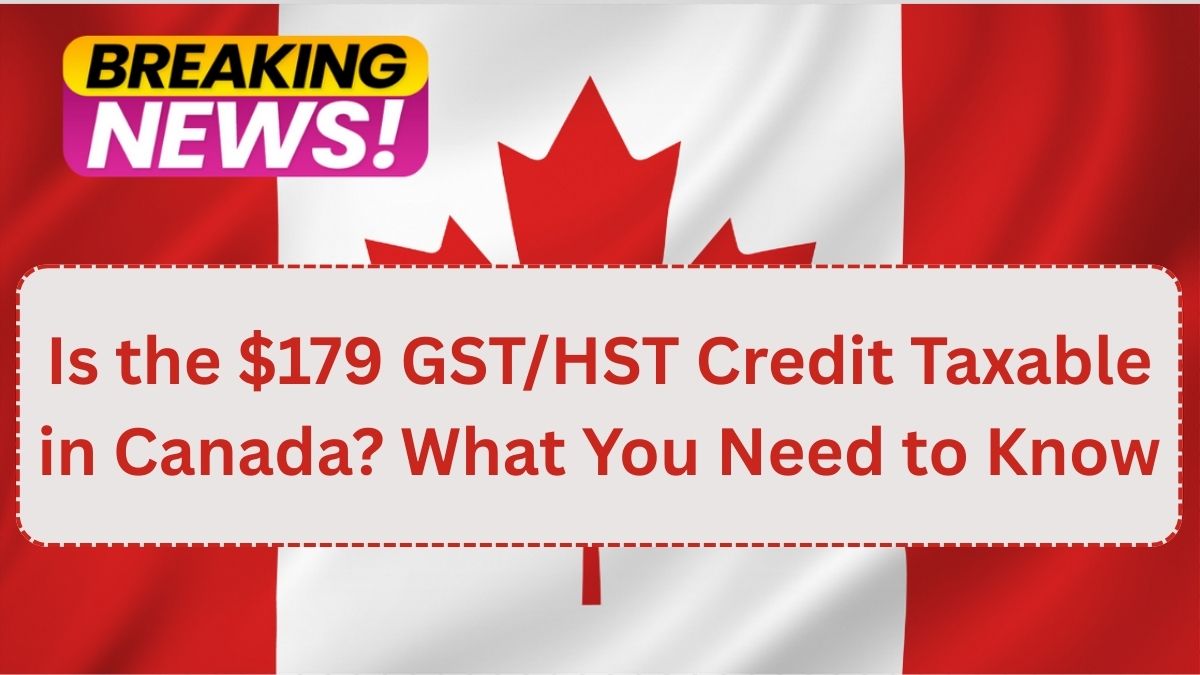For many Canadians, the GST/HST credit offers welcome financial relief, especially in times of rising living costs. In 2025, the $179 quarterly payment has prompted many to ask: Is this money considered income for tax purposes? Understanding how GST/HST credit affects your tax return is essential if you want to avoid mistakes and confidently file your taxes.
This guide breaks down the taxable status of the credit, provides a clear comparison of taxable vs tax-free government benefits, and addresses common misconceptions about refund clarification for these payments.
What Is the GST/HST Credit?
The GST/HST credit is a federal government benefit designed to offset the impact of the Goods and Services Tax (GST) and Harmonized Sales Tax (HST) for low- and modest-income Canadians. It is issued quarterly and is not based on what you paid in taxes, but rather on your income level and family situation from the previous tax year.
In 2025, eligible individuals may receive up to $179 per quarter, depending on factors such as:
-
Net family income
-
Marital status
-
Number of children under 19
Is the GST/HST Credit Considered Taxable Income?
The simple answer: No. The GST/HST credit is not taxable.
According to the Canada Revenue Agency (CRA), this credit is a non-taxable benefit, meaning:
-
You do not include it as income on your tax return.
-
It does not reduce other federal or provincial benefit entitlements.
-
It will not increase the taxes you owe.
If you’ve received a $179 credit, rest assured it will not be reported as income, nor will it impact any tax refund or liability.
How GST/HST Credit Affects Your Tax Return
While you don’t report the GST/HST credit as income, your eligibility for the credit depends on your tax return. To receive or continue receiving the credit:
-
You must file a tax return, even if you earned no income.
-
Your return must reflect accurate household income information.
-
Your marital and dependent status should be up to date.
Here’s a quick overview of how it fits into the bigger picture:
| Aspect | Impact of GST/HST Credit |
|---|---|
| Taxable income | Not included |
| Refund calculation | No effect |
| Eligibility | Determined based on previous year’s return |
| Other benefit programs | May influence related credit amounts (e.g., CCB) |
| Filing requirement | Mandatory to apply, regardless of income level |
So while it doesn’t change your refund or taxes owed, it requires filing — this is where how GST/HST credit affects your tax return matters most.
Taxable vs Tax-Free: How the GST/HST Credit Compares
To clear up confusion, let’s compare it with other government benefits:
| Program | Taxable? | Notes |
|---|---|---|
| GST/HST Credit | No | Fully non-taxable |
| Canada Child Benefit (CCB) | No | Also non-taxable |
| Employment Insurance (EI) | Yes | Taxable; you’ll receive a T4E slip |
| Old Age Security (OAS) | Yes | Taxable and can trigger a recovery tax if income is high |
| Guaranteed Income Supplement | No | Not taxable |
| Canada Workers Benefit (CWB) | No | Refundable tax credit, not taxable |
Click here to know more.
Kishan is a knowledgeable writer specializing in agriculture and the latest government job recruitments, delivering clear and insightful content to inform and empower readers.

